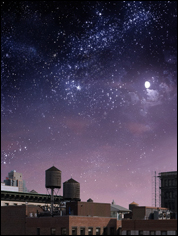

Lazarus
Opening Night: December 7, 2015
Closing: January 20, 2016
Theater: NY Theatre Workshop
Following his revelatory production of Ingmar Bergman’s “Scenes from a Marriage,” the internationally acclaimed director Ivo van Hove returns to New York Theatre Workshop with a new production, “Lazarus,” by David Bowie and Enda Walsh. Mr. Walsh makes his return to NYTW after the successful run of Once. “Lazarus” features songs specially composed for this production by Mr. Bowie as well as new arrangements of previously recorded songs. Lazarus, inspired by the 1963 novel “The Man Who Fell to Earth” by Walter Tevis, centers on the character of Thomas Newton, famously portrayed by Mr. Bowie in the 1976 screen adaptation directed by Nicolas Roeg.
BUY TICKETSREAD THE REVIEWS:
December 7, 2015
Ice-cold bolts of ecstasy shoot like novas through the glamorous muddle and murk of “Lazarus,” the great-sounding, great-looking and mind-numbing new musical built around songs by David Bowie. These transfixing moments occur when Mr. Bowie feels most palpably present — that is, when one of the show’s carefully stylized performers delivers a distinctly Bowie number in a distinctly Bowie style. Lest I create a stampede on New York Theater Workshop, where “Lazarus” (which is largely sold out) opened on Monday night, let me add quickly that Mr. Bowie himself does not appear in the flesh in this sci-fi pageant of extraterrestrial angst, which has been staged by Ivo van Hove, the incredibly (and justifiably) fashionable director. But then, much of Mr. Bowie’s extraordinary longevity as a rock god has to do with the feeling that he has never really been with us “in the flesh.” More than any of his peers or imitators, Mr. Bowie, an international star since the early 1970s, has always come across as his own spectral avatar, in a series of beguilingly designed alter egos who are both there and not there. Even in the midst of white-hot stage spectacle, his affect has been one of cool disassociation, matched by songs that are rhapsodies of alienation; cries of solitary pain turn into our collective pleasure, and we citizens of an anomic world swoon and think, “We are David Bowie.”
READ THE REVIEW


















